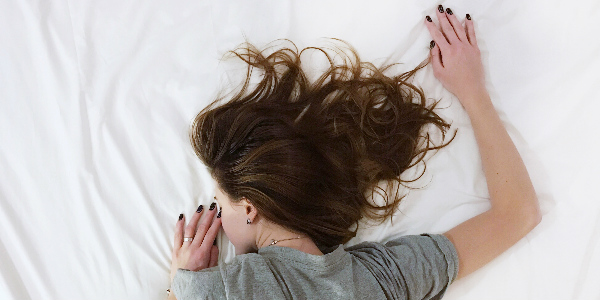Sleeping and your health: Here’s why you should snooze longer
Happy 2018! For many of us, the New Year marks the start of a new chapter in our lives. And what better time than now to kickstart a healthier lifestyle? Adopting healthier habits can be a great way to start, as they’ll likely stick with you throughout the year instead of vanishing in February like half the people at the gym. With this in mind, our first blog post of 2018 focuses on an incredibly important healthy habit: getting enough sleep.
Sleeping habits in Thailand
In 2015, the National Sleep Foundation, along with a multidisciplinary expert panel, produced a report on recommended sleep durations for different age groups. For younger adults (18 to 25 years old) and older adults (26 to 64 years old), the report recommended a daily sleep range of 7 to 9 hours per night.
So, do adults in Thailand sleep an average of 7 to 9 hours per night? According to a recent study on worldwide sleeping habits, the answer is a sound “No”. Ranking 50 countries based on their residents’ average sleep quality, Thailand was ranked 19th place, with an average time in bed of only 6 hours and 42 minutes.
What about Thailand’s Asia-Pacific neighbors?
It was also found that the most sleep deprived country not only in Asia, but also worldwide, is Japan, where the average amount of sleep is only 5 hours and 52 minutes. People in China, on the other hand, spend a little bit more time sleeping than those living in Thailand. There, the average time in bed is 6 hours and 43 minutes. In New Zealand, the average time in bed is 7 hours and 20 minutes – that’s 38 minutes more than the average in Thailand!
Why is a good night’s sleep so important?
Besides eating healthier and exercising more, sleeping enough is also incredibly important for personal health. In fact, it’s just as important. By ensuring that you have a good night’s sleep, you can reap the many health benefits associated with getting quality rest, while at the same time also avoiding the negative consequences of poor sleeping habits. Here, we look at the top health benefits that good sleep can bring:
- Avoid becoming overweight: There’s strong evidence to suggest that poor sleep is one of the strongest risk factors for obesity.
- Improve brain function: During the REM stage of sleep (when dreaming occurs), all the information you’ve acquired during the day gets processed. It has been shown that a lack of REM sleep may impair one’s ability to learn complex tasks.
- Improve immune function: A study on the development of the common cold found that those who slept under 7 hours a day were 3 times more likely to develop a cold than those who slept 8 hours or above.
- Feel energized: During the deep stages of sleep, your body goes through a restorative and reparative stage, and secretes growth hormones that energizes the body.
- Lower your risk of developing chronic health problems: Lack of good quality sleep has been found to increase the risk of developing chronic conditions like heart disease and diabetes.
How do I know if I haven’t slept enough?
Ok, now we know why getting enough sleep is essential for our health. But, how do we know whether we’re sleeping enough? Some telltale signs that you might not be getting enough quality rest include:
- Feeling tired all day
- Getting sleepy after meals
- Feeling sluggish all the time
- Hitting the snooze button too many times
- You need caffeine to get through the day
- Feeling irritable all the time
- Difficulty in staying productive
- Puffy eyes and dark under-eye circles
6 tips for sleeping better
Getting a good night’s sleep may seem almost impossible for those who often find themselves tossing and turning in the middle of the night. To help, we’ve compiled 6 key tips that will hopefully help those of you that are finding it hard to get quality sleep:
- Avoid caffeine 8 hours before you sleep
- Make sure your surroundings are optimized for sleeping (i.e. by sleeping in a cool, dark and quiet room)
- Limit alcohol consumption three hours before bedtime, as it’s known to trigger sudden awakenings
- Stick to a sleep schedule, as it can help your body become familiar with your consistent routine for sleep
- Create a relaxing bedtime ritual (listening to some relaxing music, for example). This helps your body and mind wind down before you go to bed
- Visit your doctor if you think you have a sleep-related disorder like sleep apnea or insomnia
Do health insurance plans cover sleep-related disorders?
Most sleep-related treatments and tests are outpatient procedures, which means you’ll need a health insurance plan that includes outpatient cover. While some plans will cover sleep-related disorders, please bear in mind that not all insurers will include sleep-related conditions in their outpatient benefits. If you’re unsure what your plan covers, we highly recommend that you read your policy wording, or contact a reputed broker like Pacific Prime Thailand for clarification and peace of mind.
Are you looking to stay informed about the world of Thailand health insurance? Checking out our blog, which is updated by our team of experts every week, can be a great way to start! If you have any more questions, or are looking for a health insurance solution, contact us today to get answers to all your questions, Thailand’s best health insurance plans, and a free quote!
- Why children should have health insurance cover in Thailand - March 18, 2021
- Vaccinations for Thailand: An up-to-date list of all essential inoculations - January 27, 2021
- Important questions to ask about teacher’s health insurance in Thailand - January 26, 2021

Comments
Comments for this post are closed.
We'll notify you
when our team replies!